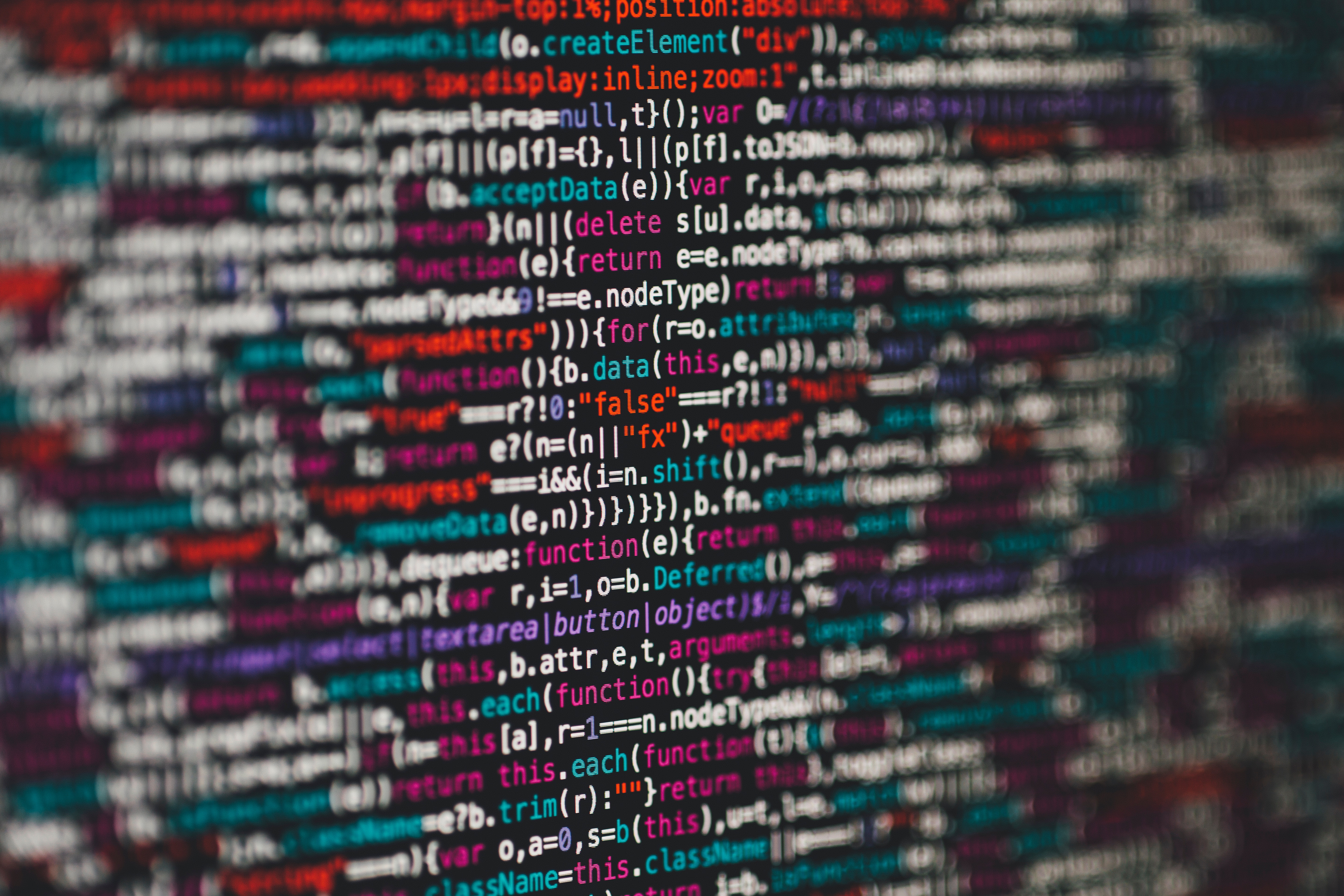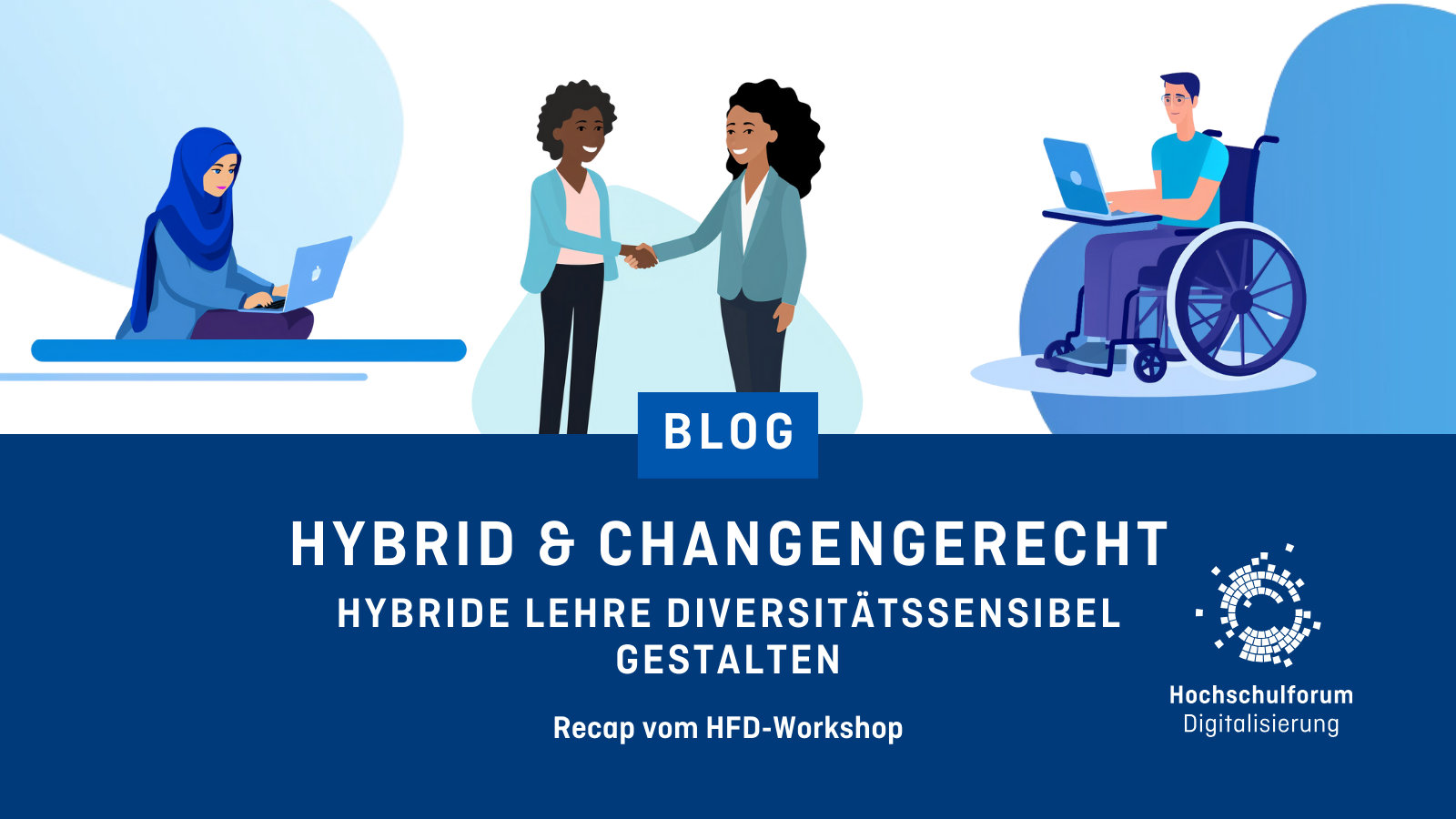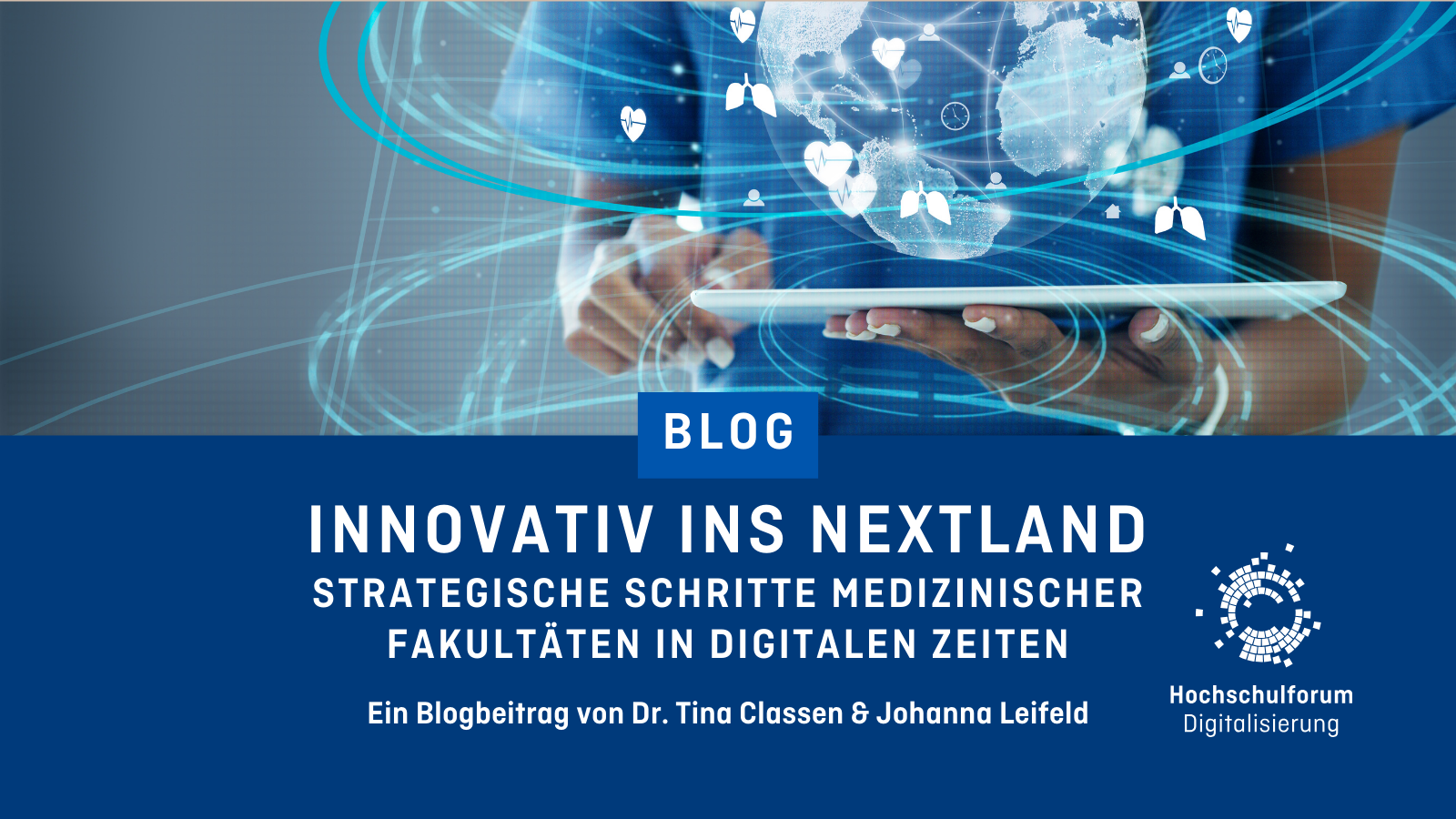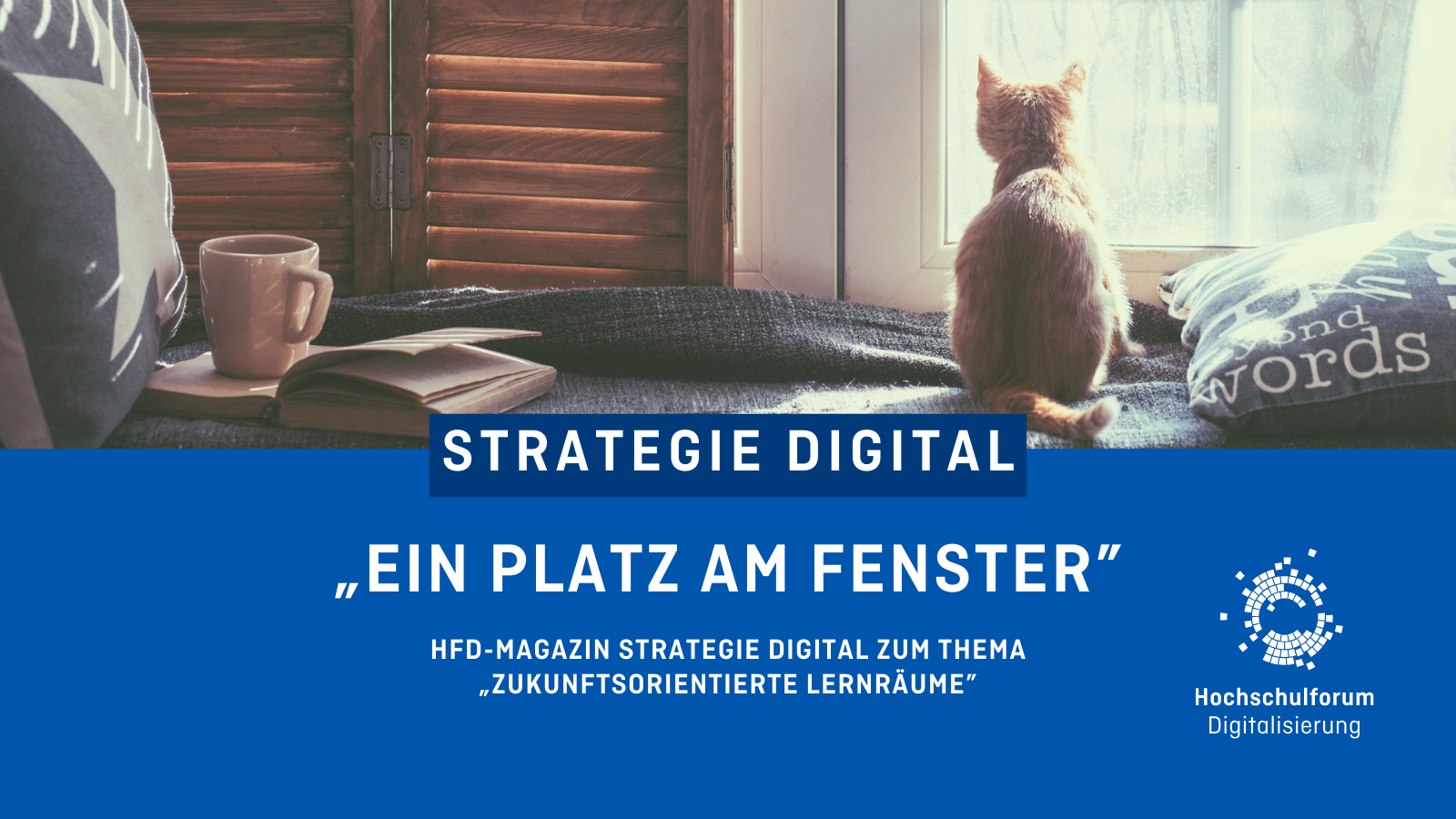Future Skills and University 4.0—are you ready for the change?
Future Skills and University 4.0—are you ready for the change?
13.02.19
Teamwork, Future Skills and new teaching formats – the current university student and “Digital Native”, Isabell Fries presents her vision for a university that teaches meaningful skills in the digital era. This article originally appeared in “Synergie – Fachmagazin für Digitalisierung in der Lehre”.
![Do we need libraries anymore? Photo: [https://unsplash.com/photos/NIJuEQw0RKghttps://unsplash.com/photos/NIJuEQw0RKg Iñaki del Olmo] Ein Bücherregal mit alten Büchern](/sites/default/files/images/blog/inaki-del-olmo-602632-unsplash.jpg)
Dear University,
For me, you have been a place of growing up, of failure, of success, of nightshifts, of challenges, of impulses for knowledge acquisition and the connection with inspiring and like-minded peers, but overall in the end you’ve been a space of the development of my own personality, my ideas as well of the enhancement of scientific knowledge.
Although the digital transformation will change you, your core will be unchangeable, namely to be an integral part of a country’s culture and a forum of spiritual and scientific encounter.
But you’re not alone in this process—the whole society is undergoing a profound change. The digital transformation is changing social communication, work and learning processes. This requires an adaptation of the competencies that the educational institutions are especially responsible for communicating. Not only IT skills, but also skills such as collaborative work, creativity or entrepreneurial thinking are becoming tremendously important. What skills do we need in the future for an increasingly dynamic and unpredictable world of work and life? How does the transformation from focusing on knowledge formation to the development of future skills succeed? How do teaching and learning places have to change and what role do educational institutions, companies and civil society play in this? Current educational structures and practices were designed for late 19th/early 20th century requirements but this outdated system is no longer appropriate for the 21st century ways of living. Transformations in society, culture, economy, politics, employment and knowledge require us to fundamentally rethink how we perceive and organize education. Everything starts and ends with education and therefore is influencing the way we will work and live in future. We need to overcome fear and failure and we need to be open for change and experiments. We need to check what competences people need to have for their future. Are there core competences that machines cannot overtake? How can we reinvent education? And do we need libraries anymore?
Education is the currency of the 21st century. My generation is described as digital natives, and we are used to combine the online and offline world—why not also implement this in the university life and create a future-based learning system?
Concrete you as a university, have to change in different points: more future skill-based teaching combined with new teaching formats and digital expertise, and updated professors as well as a re-architecture of university halls.
Future skills
Skills must be taught that will be relevant in 20 years to distinguish humans from machines. The human superpowers include literacy and numeracy (reading, coding, mathematics, etc.), the ability to focus, the ability to use your body properly (kinetics), decision-making abilities through critical thinking and interpreting given data as well as the ability to interact with fellow humans using soft skills (emotional intelligence, communication, empathy, etc.) (World Economic Forum 2016). There needs to be a connection and interactivity between the knowledge we have and the knowledge which is available on the Internet. We need to organize the available knowledge in a meaningful way given the digital resources. Education is going to be about competitive skill-based learning and deep learning competencies, like creativity and critical thinking. Decision-making capacities, interpreting data, and skills for interacting with others with emotional intelligence and empathy must be imparted. Especially communication will be of great importance, the articulatory ability means expressing emotions and ideas.

Digital expertise
Education is the beginning and ending of all learning processes. The curricula should be unique, so that machines can never catch up. As argued above this means teaching soft skills and values, such as sustainable behaviour, creativity and outside-the-box thinking. We should make sure that humans core competences are different and that they distinguish from our learning processes. The very basic understanding of digital technologies should be taught, not only of the technologies we already know, but also of the technologies that are likely to affect our society of tomorrow (Brynjolfsson & McAfee 2017). Another aspect is critical self-esteem, both for one’s own abilities and for their impact on society. As an university you should educate people who, at the same time, are critical about how they can use these skills to change our society. Because that will be the drivers of tomorrow’s change, fully capable of influencing and contributing to the development of a better, more innovative society. That’s why we need both: a basic understanding of digital technologies, for example, the ability to handle them and take a look into the future, and, on the other hand, a critical awareness of the accompanying social change potential (ibid.). Thinking innovatively and creatively is the decisive factor and a competitive advantage today. Finding new solutions, thinking creatively beyond the disciplinary boundaries, solving complex problems and seeing other people think differently—intercultural and interdisciplinary competence will be of greater importance (World Economic Forum 2016).
New teaching formats
Through global networking of knowledge resources and new communication channels via the Internet, access to knowledge and education is massively facilitated. Learning paths and speeds can be individually adapted to needs via digital technologies. Teaching in the 21st century will be about Information Communication Technology (ICT) skills, deep skills and scientific thinking. The teaching formats have to be adapted step by step to the digital transformation. Digitization can help to make academic teaching more attractive, individualized, effective and flexible on the whole (Hochschulforum Digitalisierung 2017).
New forms of collaborative working and study-centered learning require students to assume greater responsibility for learning processes and open up opportunities for co-designing teaching, while at the same time promoting flexibility and self-discipline. This can work, for example, by networking offline and online teaching formats. Lectures could be recorded, which would on the one hand increase the flexibility that students could receive the important input when and where they wanted (Rat für Forschung & Technologieentwicklung 2017). Technology can improve learning and make the learning experience more effective and meaningful, but it requires pedagogically high quality solutions and a right way of using them.
Already today new exam formats can occur, with which the universities can prepare the students for the future. A written paper with Oral Exams, for example, supports the students in their rhetoric and communication skills. 24h or 48h Take Home Exams train them to come up with complex-problem solving under time pressure, comparable to the real working life and Group Exams reinforce the very important team spirit. Every student is different—and has different strengths—some are better in memorizing and multiple-choice exams, some are brilliant in presentations—so let us as students choose our own exam formats, where we can develop our strengths and recognize our full potential!
![Quo vadis, university? Photo: [https://unsplash.com/photos/2YZygZWffjw cetteup] Door to a lecture hall](/sites/default/files/images/blog/cetteup-38668-unsplash.jpg)
Professor 4.0—the human factor
A professor stands in front of a crowded lecture hall and explains a complex theory and the students just listen. A scenario that is quite common at today’s universities. To be future oriented this has to be changed. Optimal would be that students prepare themselves at home with didactically elaborately produced instructional videos and supplementary materials (e. g. MOOCs) (Breslow et al. 2013). In the later “presence phase” at the university they discuss, deepen the tasks, ask questions, do exercises. They sit in groups together in the lecture hall, they argue loudly and tutors sit down and help. The trend should go to digital teaching and new examination methods combined with very good classroom teaching.
The reuse of content (for example in the form of videos) allows the teachers to intensify the individual supervision of the students and to discuss the substance conveyed in advance by the video in the lecture or in the seminar with the students. Technology does not make the teachers redundant, but rather changes their role from knowledge facilitators to learners (Rat für Forschung & Technologieentwicklung 2017).
I want a professor / teacher that is my mentor, someone that is challenging me in my strengths, supports me and gives me time to reflections. That means that I am moving in an environment, where I feel respected and valued, and can meet challenges at my own pace, where failure is not a failure, but more a learning process to create something great. Personalities develop where they are challenged to the right extent and allowed to reflect on these challenges. The future of education will require educators to be more entrepreneurial, collaborative, creative and innovative. Additionally, teachers will be even more tech savvy, demanding, confident and focused as consumers of education.
For example, through MOOCs, the on-site mentor has more time, and can be unique to the student and foster their strengths (Breslow et al. 2013). Therefore, a future based education learning system has to be established (ibid.).
As with all other media, digital formats also need to be mindful of the cognitive, social, and emotional foundations of learning if they want to support and encourage learning.
Teamwork makes the Dreamwork
New didactic possibilities also arise in online teamwork. In the form of student online communities, cooperation can take place anywhere and without additional teachers. In this way, for example, inter-cultural and trans-cultural learning in groups can be made possible for those who are unable to study abroad (“virtual mobility”). In addition, creative experimentation in multimedia labs allows situations to be replicated that would otherwise be very costly or dangerous (ibid.). But with all the benefits of technology, there still has to be one space, where students can meet and study together face-to-face in real life. Here, you as a university will have your most valuable task to bring together all students in one space and to create a blueprint of the humanistic education ideal under a digital age.
University as co-working spaces
Lecture halls will convert into co-working spaces and traditional learning institutions will be disrupted and replaced by new formats such as innovative forums. How cool would it be to have creative and flexible learning spaces which include a level of excitement and where the spontaneous creativity runs high? This “place to be”—an inspiring learning space in the formal educational framework—enables learning that is very close to people and supports team spirit and critical discussions.
![Co-working spaces instead of lecture halls? Bild: [https://unsplash.com/photos/xPHmmVKS8lM Nathan Dumlao] Stuhlreihen im Hörsaal](/sites/default/files/images/blog/nathan-dumlao-572049-unsplash.jpg)
For me, the future of knowledge lies in learning from each other, be it digital or analog. Learning spaces with a visualized architecture and 24/7 access give the students flexibility in their learning environment. The future on education is about access, anywhere learning and collaboration, both locally and globally (Fries & Dercks 2017).
It is possible to design the future
The future of education and therefore the future of university is in the end the question if we are ready for the change. It is possible to design the future of university with our human superpower skills. I encourage all students to be part of this change, because in the end it is us, as students who are the driving force for changing the system towards the future.
In the digital area, more important than ever is the social interaction within fellow students. I truly believe in the spirit of teamwork. And that’s where I see a huge potential for you as university to strengthen—as a social place, social interactions and the team spirit. When I’m looking back to my university life it is not the many nightshifts or exams, that I remember, instead it is the great people that I was surrounded with because “in the end it is always the relations with people that give life its real value” (Wilhelm von Humboldt).
References
Breslow, L., Pritchard, D. E., Deboer, J., Stump, G. S., Ho, A. D. et al. (2013). Studying Learning in the Worldwide Classroom: Research into edX’s First MOOC. Research & Practice in Assessment, Vol. 8, Lynchburg.
Brynjolfsson, E. & McAfee, A. (2017). Machine, Platform, Crowd: Harnessing Our Digital Future. New York: W. W. Norton & Company.
Fries, I. & Dercks, F. (2017). It’s a big wake-up call for teachers and policymakers, Retrieved on 05th of June, 2018, Available under: https://uhh.de/b2jpl [04.07.18].
Hochschulforum Digitalisierung (2017). Reinventing Education in the Digital Era, Berlin.
Rat für Forschung und Technologieentwicklung (2017). Zukunft und Aufgaben der Hochschulen: Digitalisierung, Internationalisierung, Differenzierung. Wien: LIT Verlag.
World Economic Forum (2016). The Future of Jobs: Employment, Skills and Workforce Strategy for the Fourth Industrial Revolution. Global Challenge Insight Report. Geneva, Switzerland.


 Dr. Klara Groß-Elixmann
Dr. Klara Groß-Elixmann 

 Isabel Larisch
Isabel Larisch 